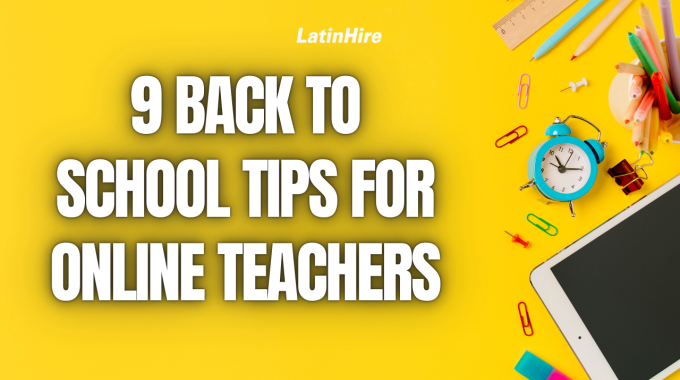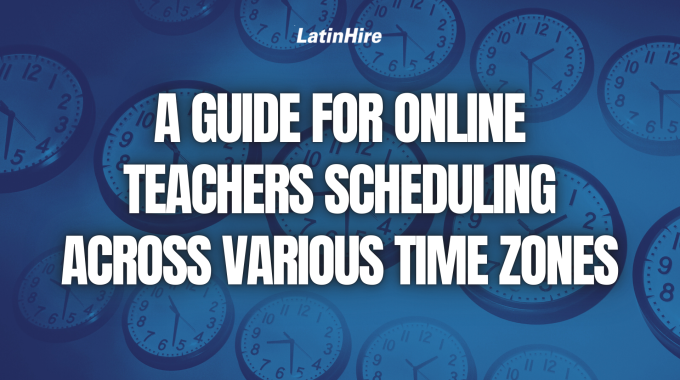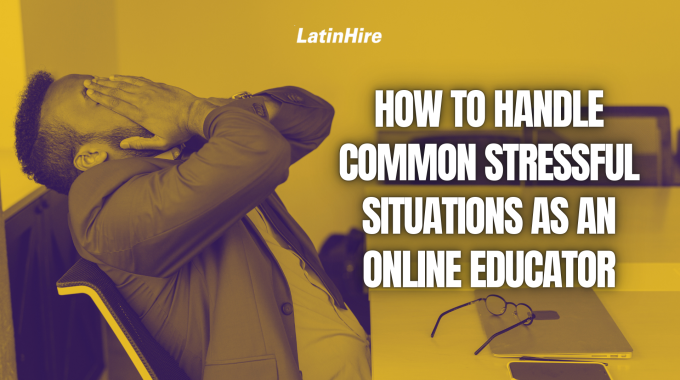Yesterday (March 9, 2025) marked the start of daylight saving time (DST)—a potential headache for…

9 Back to School Tips for Online Teachers
A new school year is starting this week for schools in the northern hemisphere, so online teachers and tutors are gearing up to create engaging and productive lessons for their students. Whether you’re an experienced online educator or new to the virtual classroom, starting the year off right sets the tone for a successful semester.
Here are 9 tips to help you prepare, stay organized, and build meaningful connections with your students for the new school year to come!
1) Refresh Your Virtual Classroom Setup

Take a moment to assess your online teaching environment. Make sure your computer, microphone, and webcam are in good working condition. Test your internet speed to avoid connectivity issues during live classes. Check if your virtual classroom software (like Zoom, Google Meet, or Skype) has any updates and make sure to familiarize yourself with them so you can maximize all the tools.
2) Plan and Organize Your Curriculum
Creating a well-structured curriculum is essential for a smooth school year. Break down your course content into units, set clear learning objectives, and develop a schedule that accommodates both live sessions and take-home learning activities. Use digital tools like Google Classroom, Notion, or Trello to organize your lesson plans, assignments, and assessments. Make sure to leave room for flexibility to adapt to your students’ needs.
3) Create Engaging and Interactive Educational Content
Online teaching requires a different approach to content delivery. Consider incorporating a variety of multimedia elements to make your lessons more engaging. Use videos, interactive quizzes, online simulations, and collaborative tools to encourage students to participate. Remember, the more interactive your content, the more likely your students are to stay engaged and retain the material.
4) Establish Clear Communication Channels

Effective communication is key to a successful online learning environment. At the start of the year, establish clear guidelines for how and when students can reach you. This could include virtual office hours, email response times, or a dedicated chat channel for quick responses. Ensure that students understand the expectations for communication and participation to minimize confusion and foster a supportive classroom atmosphere.
5) Build a Strong Classroom Community
Creating a sense of community in an online classroom can be challenging but is crucial for student engagement. Start the school year with online icebreaker activities that encourage students to share their interests and get to know one another. (Click here to check out a previous article to get some ideas on ice breaker questions.) Use discussion boards, group projects, and peer feedback sessions to foster collaboration and build relationships. Remember, a positive classroom culture promotes better learning outcomes.
6) Use Feedback and Reflective Practices
Feedback is a powerful tool for educators to learn more about how they can improve their teaching practices. Regularly gather feedback from your students about their learning experience and adjust your teaching strategies accordingly. Encourage reflective practices where students can access their own progress and set personal learning goals. This approach promotes a growth mindset and helps students take ownership of their own learning journey.
7) Stay Updated with Professional Development
The field of online education is constantly evolving, with new tools, strategies, and research emerging regularly. Stay updated with professional development opportunities, such as webinars, online courses, or educational conferences. Networking with other educators and sharing experiences can provide fresh perspectives and innovative ideas to enhance your teaching practice.
8) Take Care of Your Well-Being

Teaching online can be demanding, and it’s easy to burn out if you don’t prioritize self-care. Set boundaries for your work hours, take regular breaks, and find time for activities that help you recharge. Remember, your well-being is just as important as your students’, and a healthy, energized teacher is better equipped to deliver impactful lessons.
9) Stay Adaptable
The beginning of the school year is an opportunity to set a strong foundation. However, remember to stay adaptable and open to change. The virtual classroom is a dynamic environment where flexibility and creativity can greatly enhance the learning experience. Be prepared to pivot and innovate as you navigate the new school year.
Have a wonderful start to the new school year and happy teaching!



